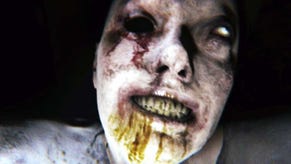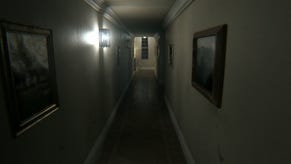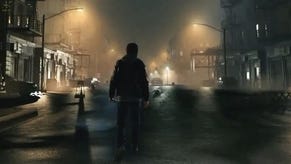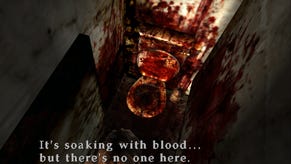10 years on, P.T. remains the most influential horror game that never existed
A playable teaser for the Kojima-helmed Silent Hill game that never was, looking back on a decade of P.T. proves that it has one of the most unusual legacies in gaming.
It's one minute to midnight, and you're wandering the front hallway of what looks to be an average American suburban home. The place is a bit of a mess, but for a house that presumably accommodates a young family nothing looks too unusual on first inspection. The lights are flickering intermittently, but that's probably just from the storm you can hear outside.
A voice on the radio soothingly narrates the actions of a man — maybe you? — who murdered his wife and their children. You take a closer look at the piles of rubbish on the floor and see that it's all a bit more sinister than you thought at first. The lights dim again and a baby with a way-too-raspy voice starts crying somewhere in the house. Yeah, something bad definitely happened here.
It's a setup many of us are extremely familiar with, despite how comparatively few of us ever got to actually play it.
P.T. — Hideo Kojima's playable teaser for the Silent Hill game he never got to make — is part of an unholy quartet that came together to kickstart a horror game renaissance during the summer and autumn of 2014. P.T. and Five Nights at Freddy's released within a few days of each other in August, a one-two punch of terror that was then repeated by Alien: Isolation and The Evil Within in October. This season of spooks left an indelible handprint on the horror genre in games: marking the beginning of a rapid shift away from the early 2010s' irresolute line-up of action shooters, family-friendly cartoon ghost hunting games, and gut-wrenchingly sad depictions of impossible parenting choices made against the backdrop of a zombie apocalypse (a game so nice they made it twice!), and back towards a more cohesive view: that in order to be truly deserving of the classification, horror games should be scary.
No wonder that a decade later, you can still catch glimpses of P.T.'s influence on many — if not most — new horror games. All this despite the fact that P.T. itself turned out to have an incredibly short lifespan.
The PlayStation 4 was less than a year old when P.T. released, so despite being a free game — all part of the short-lived ruse that presented P.T. as an indie title from the fictional 7780s Studio — there were plenty of people who simply didn't have access to the sole platform it was ever made available on. Luckily for those of us whose budgets didn't stretch to a brand-new console at the time, 2014 was also the year that Twitch really hit its stride as gaming's premier tastemaker, so within hours P.T. was being streamed everywhere.
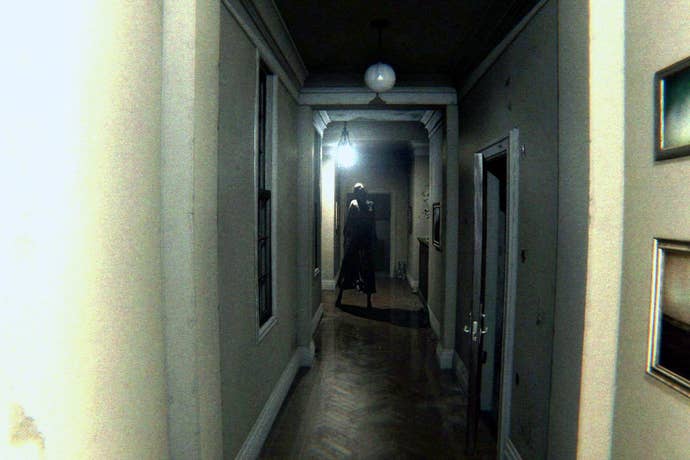
Normally it would be slightly frustrating to see a stealth AAA horror teaser with ARG elements spoiled across the entire internet within a day of its launch, but on the plus side, that does mean that we have an invaluable amount of documentation of a game that basically no longer exists. The hype generated by P.T. had barely died down when, in April 2015, Konami pulled perhaps two of the most controversial moves in game development history back-to-back: on the 15th, they cancelled the full release of Silent Hills; and on the 26th, they pulled P.T. from the PlayStation Store.
For horror lovers, it's still a bit of a sore spot that we never got that Silent Hill game co-directed by Kojima and Guillermo del Toro, starring Norman Reedus and with contributions by horror manga legend Junji Ito. That sentence reads like such a blatantly fake game leak that it's hard to wrap your head around the fact that it was really supposed to happen at one point. That only just upwards of a million people ever got to actually play P.T. for themselves just rubs salt into the wound, as attested by the surprisingly above-market price you'll still have to pay for a well-used PS4 a decade later, provided it has even theoretical access to P.T.
But just like its gangly phantom-in-chief Lisa, P.T. continues to cast a long shadow despite its early demise. Even with the phenomenal success of Five Nights at Freddy's at the same time guaranteed to spawn imitators, photorealistic one-button walking sims featuring environmental puzzles became the indie horror trend of the moment in the wake of P.T.'s popularity.
Games like Layers of Fear, Visage, and the sadly-never-finished Allison Road became well-known in their own right, but by 2016 you couldn't turn around in the horror genre without tripping over another game intended as a remake, demake, spiritual successor, or homage to P.T. And even though its ubiquity has died down a bit now, games like Haunted Bloodlines (praised as a standout of the most recent Steam Next Fest) acknowledge with pride the influence P.T. had on their design and development choices.
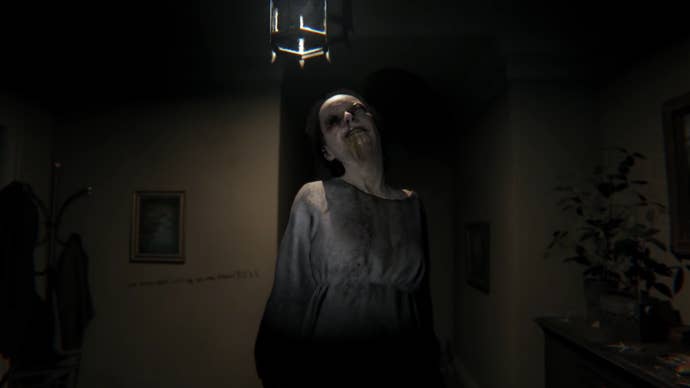
But it'd be far too simplistic to reduce P.T.'s legacy to the explosion in popularity of indie horror walking sims in the mid-2010s, since its influence on triple-A horror game development is just as apparent. Hideo Kojima's first independent game Death Stranding lifts so many ideas from P.T., a compelling conspiracy theory posits that Silent Hills was never really expected to go into development, and that creating hype for the soon-to-be-founded Kojima Productions was always the demo's true aim.
Even without donning a tinfoil hat, it's easy to recognise that Resident Evil — Silent Hill's main rival in the fight to be recognised as the most recognisable horror gaming franchise — pulled out of a long slump after a P.T.-inspired demo for Resident Evil 7 marked a significant shift in focus for the franchise, away from third-person action starring tooled-up military personnel, and towards a first-person POV of a terrified everyman fumbling his way around a creepy mansion in search of his missing wife.
And that's still not all. Despite its short initial lifespan, P.T. itself is the spook that keeps on spooking quite literally from beyond the grave: like back in 2019, when YouTuber Lance MacDonald dug into the game files and revealed that P.T.'s main enemy Lisa attaches herself to your back and stays hidden in your blind spot for much of the game.
Did you ever notice how sometimes in P.T. when your character takes a step forward, you'll hear three footsteps? That's actually from Lisa shuffling right along behind you. As a longtime horror fan I consider myself pretty jaded when it comes to the scare tactics of the genre, but I swear I felt my amygdala shrivel up when I learned just how often I'd witnessed this without even realising it over the previous five years.
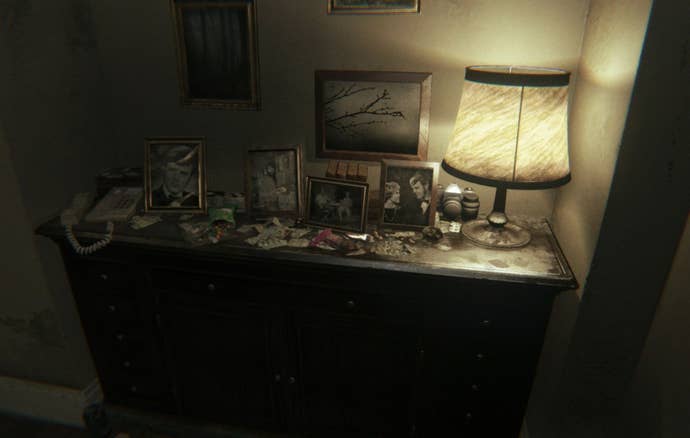
Then there's the fact that Layers of Fear — one of P.T.'s most well-known successors — apparently impressed Konami so much that after wrapping up their P.T.-inspired trilogy, developer Bloober Team went to work on the long-anticipated remake of Silent Hill 2. This has proven a controversial choice among those who see a lack of fit between the expertise needed to make walking sims and to recreate one of the most popular survival horror games of all time, sure; but personally I find it oddly gratifying to see one aspect of P.T.'s legacy come full circle in this way a decade down the line.
Along similar lines, Christophe Gans — the director of the Silent Hill movie franchise — has spoken of P.T. as a notable influence on the revived film series, which is expected to return from its long hiatus with a third entry based on SH2 later this year.
In the end, the fact that there's simply so much to say about P.T. a full 10 years after its release is perhaps all that really needs to be said. I'd personally consider it one of the best and most important games of the 2010s, and I know I'd be far from alone in that assessment. Not bad for a 90-minute game about walking down a hallway that hardly anyone got to play.


.jpg?width=291&height=164&fit=crop&quality=80&format=jpg&auto=webp)

